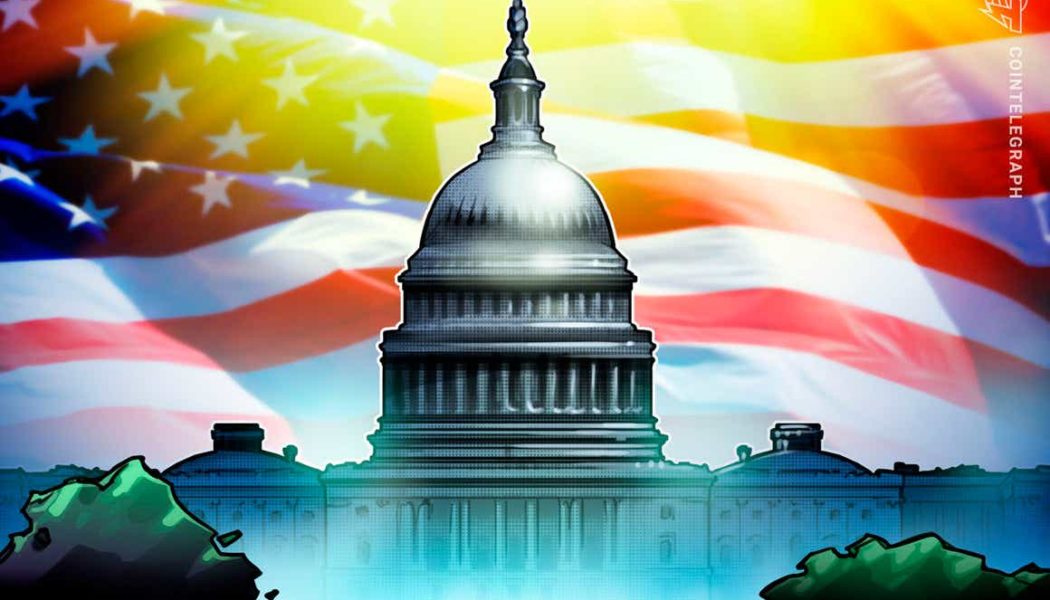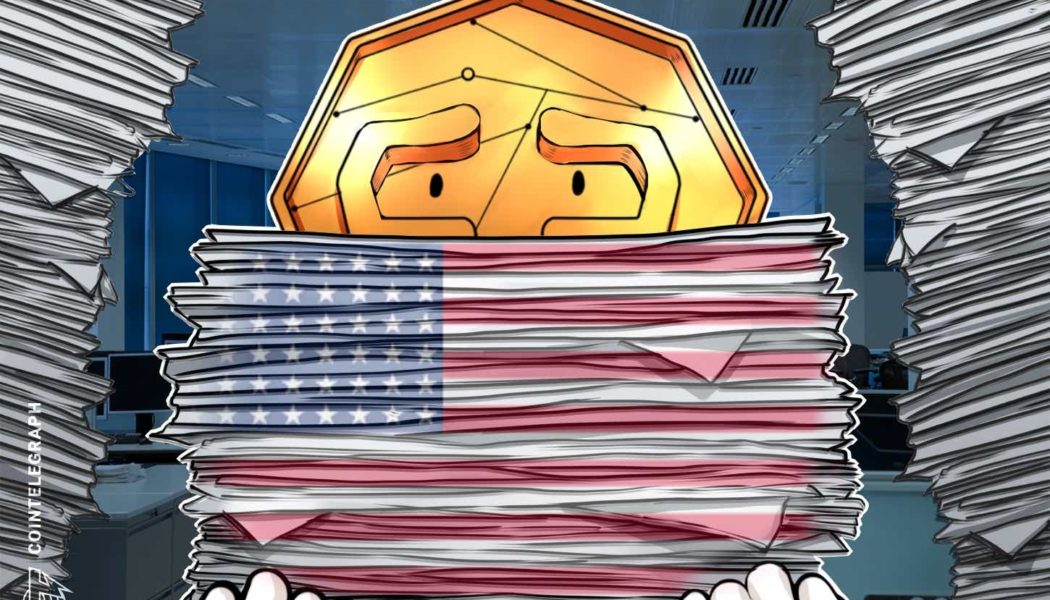Law
Law Decoded: Russia flounders, America competes, IMF keeps fuming, Jan. 24–31
One of the most fascinating implications of the collision between traditional political institutions and the crypto space is how it can reveal the glaring lack of cohesion within power systems that otherwise look monolithic. Digital assets reside in a parallel policy dimension where neither a centralized consensus nor a clear rulebook exists, leading to a surprising variety of voices and opinions emerging in the absence of a politically coordinated course. Last week, a rare lively policy debate broke out in Russia in the aftermath of its central bank’s attempt to promote a hardline stance on crypto. One does not often see such a public interagency disagreement on substantive issues. Below is the concise version of the latest “Law Decoded” newsletter. For the full breakdown of policy develo...
Staying cool: Is crypto snowballing to 1 billion users this year?
Crypto.com raised a few eyebrows this past week when it announced cryptocurrency users worldwide could reach 1 billion by the end of 2022. The timing was curious, given that Bitcoin (BTC) and many other cryptos are entwined in one of the largest drawdowns in their (albeit short) history and with the prospect of United States Federal Reserve interest-rate tightening edging ever nearer. But the cryptocurrency exchange, which in November gave its name to the arena where the Los Angeles Lakers basketball team plays in a 20-year deal, was obviously taking the long view. Also, its prediction was contingent on two things happening: one in the “developed” world, the other in less-mature national economies. It also involved some statistical extrapolation. To wit, the main arguments for ...
House members urge US Treasury Secretary to clarify definition of broker in infrastructure law
A bipartisan group of members from the U.S. House of Representatives called on Treasury Secretary Janet Yellen to clarify the language in the infrastructure bill signed into law in November around the definition of “broker.” In a Wednesday letter, House Financial Services Committee ranking member Patrick McHenry and ten other representatives urged Yellen to reference the Keep Innovation in America Act to “ensure that any future guidance” in the November infrastructure bill would provide “the necessary clarity to the digital asset ecosystem.” In addition to the reporting requirements, the lawmakers said that the Treasury Department should narrow the scope of the information a broker can capture, as it would risk “the creation of an unlevel playing fie...
Central bank overkill: Russia’s proposed crypto ban and why everyone’s against it
On Jan. 20, the Central Bank of Russia (CBR) issued a report summarizing its position on digital assets and proposing a ban on any crypto trading and mining operations in the country. Although the CBR’s strict position on the matter was never a secret, such a bold statement triggered waves of fear, uncertainty, and doubt — otherwise known as FUD — across the board, given Russians’ high rates of involvement in the global digital assets market. Yet, there are reasons to doubt the ultimate effectiveness of the CBR’s hardline bidding, both in terms of its enforceability and its acceptance by other power centers, including legislators and siloviki (securocrats). The picture gets even more complicated for the central bank, as a high-ranking official within another major center of economic ...
Crypto policy advocacy group warns of ‘disastrous’ provision in a new US bill
Jerry Brito, the executive director of non-profit crypto policy advocate group Coin Center, suggested U.S. residents call their elected officials over possible privacy and due process concerns in a new bill proposed by House leaders. According to a Wednesday Twitter thread from Brito, the America COMPETES Act recently released by House members contains a provision that he said would be “disastrous” for crypto users from both a privacy and due process standpoint. According to the Coin Center director, a section of the bill on the “prohibitions or conditions on certain transmittals of funds” proposed by Representative Jim Himes would give the U.S. Secretary of the Treasury “unchecked and unilateral power to ban exchanges and other financial institutions from engaging in cryptocurrency transa...
U.S. Congressman calls for ‘Broad, bipartisan consensus’ on important issues of digital asset policy
In a letter to the leadership of the United States House Financial Services Committee, ranking member Patrick McHenry took a jab at “inconsistent treatment and jurisdictional uncertainty” inherent in U.S. crypto regulation and called for the Committee to take on its critical issues. McHenry, a Republican representing North Carolina, opened by mentioning that the Committee’s Democrat Chairwoman Maxine Waters is looking to schedule additional hearings addressing matters pertinent to the digital asset industry. He further stressed the need for identifying and prioritizing the key issues and achieving a “broad, bipartisan consensus” on the matters affecting the industry that holds immense promise for the financial system and broader economy. Citing the confusion that the industry faces due to ...
Vibe killers: Here are the countries that moved to outlaw crypto in the past year
Last week, Pakistan’s Sindh High Court held a hearing on the legal status of digital currencies that might lead an outright ban of cryptocurrency trading combined with penalties against crypto exchanges. Several days later, the Central Bank of Russia called for a ban on both crypto trading and mining operations. Both countries could join the growing ranks of nations that moved to outlaw digital assets, which already include China, Turkey, Iran and several other jurisdictions. According to a report by the Library of Congress (LOC), there are currently nine jurisdictions that have applied an absolute ban on crypto and 42 with an implicit ban. The authors of the report highlight a worrisome trend: the number of countries banning crypto has more than doubled since 2018. Here are the ...
Former Binance US CEO Catherine Coley is still missing, and no one seems to be talking
Around the time Binance.US announced former Comptroller of the Currency Brian Brooks would be leading the crypto exchange, former CEO Catherine Coley effectively dropped off the face of the digital world. Coley, who had regularly posted updates on Binance.US and her personal life to her Twitter account, has been inactive on the social media platform since April 19. Her job experience on LinkedIn ends with her two years as CEO of Binance.US, which she left in June 2021, and her online silence has led at least one news outlet to reach out to San Francisco authorities to determine if she had been reported missing — as of October, the answer was “no.” Major figures in crypto also noticed the absence of Coley. Ripple chief technology officer David Schwartz said in July that the former Binance.U...
Early birds: U.S. legislators invested in crypto and their digital asset politics
According to some estimates, as many as 20% of Americans were invested in cryptocurrencies as of August 2021. While the exact number can vary significantly from one poll to another, it is clear that cryptocurrencies are no longer just a niche passion project for tech enthusiasts or a tool for financial speculation. Rather, digital assets have become a widespread investment vehicle with the prospect of becoming mainstream. Optimistic as that is, this level of mass adoption still does not enjoy a commensurate political representation, with senior United States politicians largely lagging behind the curve of crypto adoption. This makes the very narrow group of congresspeople who are also hodlers particularly interesting. As a lawmaker, does owning crypto, or at least having some crypto ...
Law Decoded: First-mover advantage in a CBDC conversation, Jan. 10–17
Last week saw an unlikely first move in the opening narrative battle around a prospective U.S. central bank digital currency: Congressperson Tom Emmer came forward with an initiative to legally restrict the Federal Reserve’s capacity to issue a retail CBDC and take on the role of a retail bank. This could be massively consequential as we are yet to see a similarly sharp-cut expression of an opposing stance. As a matter of fact, it is not even clear whether other U.S. lawmakers have strong opinions on the matter other than, perhaps, condemning privately issued stablecoins as a digital alternative to the dollar. By framing a potential Fed CBDC as a privacy threat first, Emmer could tilt the conversation in the direction that is friendly to less centralized designs of digital money. Below is ...
Pakistan’s president calls for more training in blockchain technology
Arif Alvi, currently serving as the president of Pakistan, called for additional training in emerging technologies including blockchain, artificial intelligence and cybersecurity while meeting with a delegation of blockchain technology experts. In a Monday announcement, Alvi said Pakistan’s talent pool should be ready to meet the needs of the Fourth Industrial Revolution, which includes utilizing blockchain technology in the public and private sectors. According to the Pakistan president, the technology could be used as a government tool to track transactions, reduce corruption and increase transparency. Among the panel of experts was Bitcoin SV advocate Jimmy Nguyen, founding president of the Bitcoin Association. President Dr. Arif Alvi had a meeting with an international delegation ...
Bitfinex advises Ontario-based users to close accounts before March 1
In a Friday announcement, Bitfinex said it would be immediately closing the accounts for Ontario-based customers who have no balances on the platform. In addition, it planned to restrict access to those who do not have open positions in the exchange’s peer-to-peer financing market or open margin positions. Users who have balances or open positions on Bitfinex and are one of the roughly 15 million residents of Ontario — which includes Toronto and the nation’s capital city of Ottawa — “will no longer have access to any services” starting on March 1. The exchange advised customers to withdraw funds before the effective date. Though Bitfinex did not mention the Ontario Securities Commission, or OSC, the region’s financial watchdog has been responsible for cracking down on crypto exchange...























